Rome readies for start of Holy Year
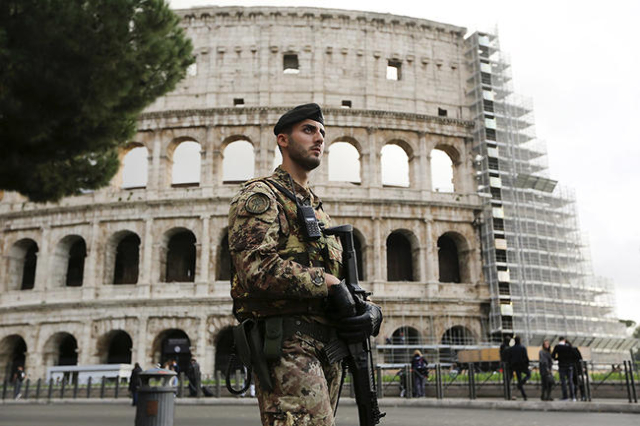
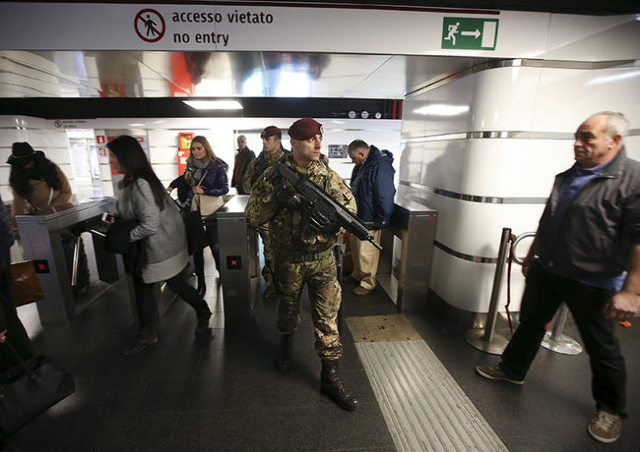
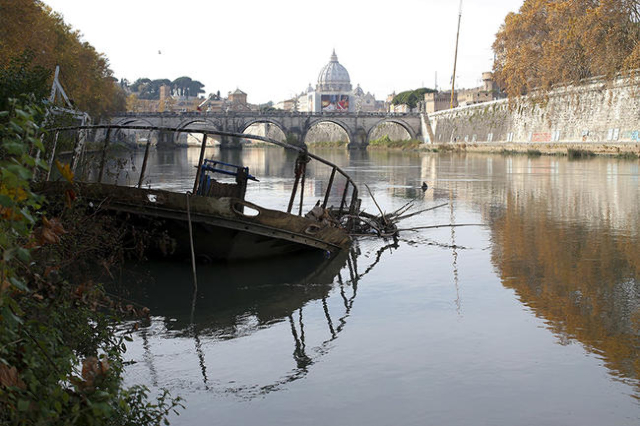
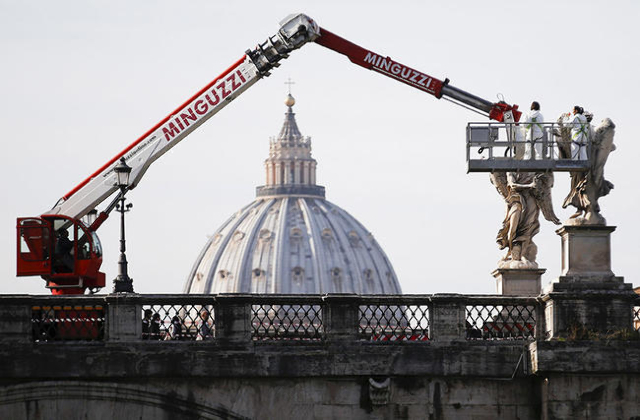
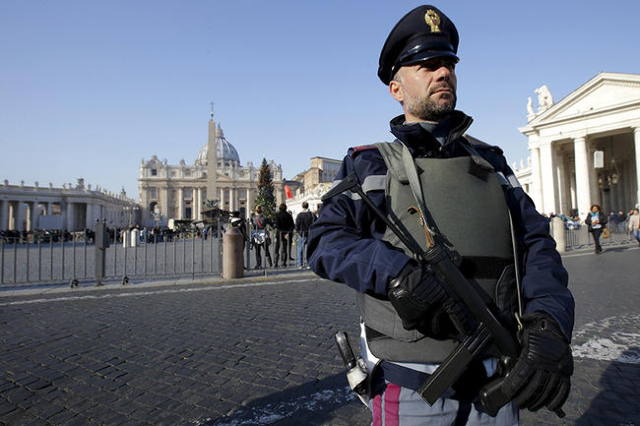
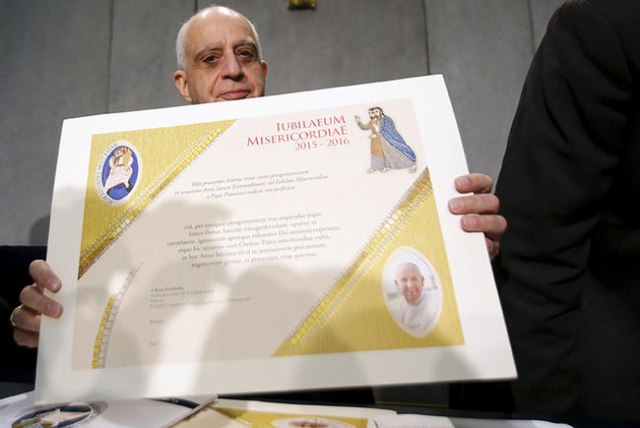
ROME — Rome is bracing for the arrival of millions of pilgrims for the Roman Catholic Holy Year which officials had hoped could revitalize the scandal-plagued city, but which threatens to be more of a headache than a help.
Pope Francis took Italy by surprise when he announced in March that a Holy Year, one of the Church’s most important events, would start on Dec. 8, some nine years before the next one had been scheduled.
During the 12-month Jubilee, Catholics coming to the Eternal City can gain indulgences, which, they believe, might speed their passage to heaven.
However, before they can turn their thoughts to paradise, they will first have to navigate the many obstacles that Rome will throw their way — including clogged traffic, a crumbling public transport system and heightened security.
The Vatican says 25 million people came to Rome for the last Holy Year, in 2000, and local politicians saw the latest, unexpected, Jubilee as an opportunity to draw on central government funds and spruce up the increasingly dilapidated city.
But whereas last time the city had years to get ready for the pilgrim invasion, this time around it had only had a few months to make plans. Already chaotic preparations were thrown deeper into disarray in October when Rome Mayor Ignazio Marino was forced to resign in an unrelated expenses scandal.
His entire administration had to stand down with him, meaning that with just weeks to go before the Holy Year the city was rudderless. The national government dispatched a team of unelected bureaucrats to step into the breach.
When they took charge, none of the major projects related to the Jubilee, such as repaving pothole-riddled roads, had been started.
“This has fallen at one of the worst possible moments in Rome’s history,” said Roberta Lombardi, a politician with the anti-establishment 5-Star Movement.
Italians are reputed to have a knack for starting to swim fast only when the flood waters reach their throats yet still manage to avoid drowning. So despite the slow start, the city’s new masters say they will meet the challenge.
“This is a test that we absolutely must pass, and we will pass it,” Rome’s Commissioner Francesco Paolo Tronca told a news conference this week called to show off a security center that will oversee Jubilee policing from south-central Rome.
MILITANT FEARS
The Nov. 13 attacks in Paris, which killed 130 people, showed the vulnerability of European cities to militant assaults and forced Italian officials hastily to bolster their security plans for the Holy Year.
Islamic State claimed responsibility for the Paris carnage and in a subsequent video threatened to “invade Rome”. The U.S. embassy has warned its citizens that major tourist sites in Italy, including the Vatican, could be targets.
Tiny Vatican City has 110 Swiss Guards who protect the pope. Protection of the pilgrims will largely be the responsibility of Italy and Interior Minister Angelino Alfano has promised to put an extra 700 soldiers on the streets to back up police, and hire more security staff next summer.
Pilgrims will have to pass through metal detectors on their way to St. Peter’s Square, while surveillance drones will be deployed and a no-fly zone imposed over the papal state during Jubilee festivities.
Officials admit that even this might not be enough.
“The risk of terrorism will never be zero, but we are working to attain the level of security that people rightly ask for,” said Franco Gabrielli, city security operations chief.
Some city officials believe concerns over possible militant attacks might keep many potential visitors away.
Research firm Censis has forecast that the Jubilee will draw 33 million people to Rome, but a growing number of officials believe that in the end the number of visitors might be closer to 13 million people — the same numbers as in any normal year.
Hoteliers say early bookings were low and some had received cancellations after the Paris attacks.
“There will be a lot of people, but not the millions that you hear talked about,” said Giuseppe Roscioli, head of Rome’s hotel association Federalberghi.
“To be honest, we expected more.”
OPENING DOORS
The national and local governments have pledged 250 million euros ($264.3 million) for the event, a far cry from the 1.8 billion euros spent in and around Rome on the 2000 Jubilee when public coffers were more robust.
The city has 31 projects, including resurfacing pavements, renovating public toilets, putting new lighting on the city’s elaborate bridges, and sprucing up parks.
The commissioner’s office expects some will be ready by Dec. 8, when Pope Francis opens the Holy Door of St Peter’s Basilica to kick off the Jubilee, and most to be finished by the end of January 2016, when the Holy Doors at Rome’s three major basilicas will all have been opened in separate ceremonies.
Francis, who says he wants his Church of 1.2 billion members to be more merciful and less rigid toward sinners, said his Jubilee would be an occasion for the Church to rediscover the need to be forgiving and generous.
But consumer groups say the local authorities need to be unforgiving when it comes to dealing with the hordes of street hawkers, illegal taxi drivers, pick pockets and local opportunists who will no doubt try to cash in on the Holy Year.
As a first step, impersonators dressed as Roman Centurions, often criticised for their pushy tactics as the seek payment for photos from tourists, have been banished from around the Colosseum amphitheatre because the city says they damage its “respectability”.
Consumer group Codacons is opening a help desk manned by lawyers and translators where pilgrims can go for legal advice if they object to treatment they get from local businesses.
“Over the years, Rome has earned itself a reputation as a city where people try to rip you off,” said hotelier Andrea Spalletti. “We are gradually redeeming ourselves though. Maybe people finally understand that we can’t go on like this.”












